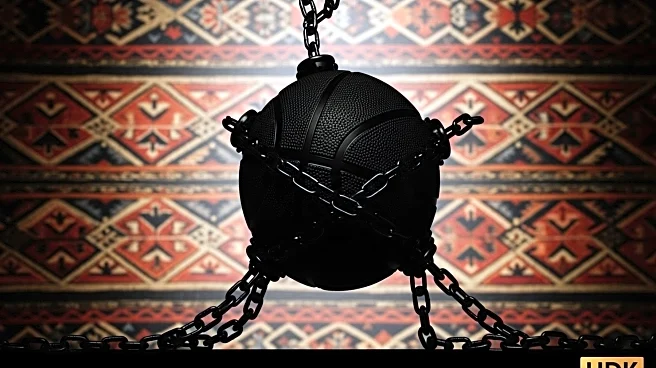What's Happening?
A major investigation has revealed that several NBA-associated brands, including Li-Ning, Anta, and 361 Degrees, are linked to forced labor practices in China. These brands have facilities connected to the Xinjiang labor transfer scheme, which is part of the Chinese government's efforts to assimilate ethnic minorities such as Uyghurs, Kazakhs, and Kyrgyz into the dominant culture. The investigation highlights the involvement of these brands in human rights abuses, with factories employing workers from the labor transfer program. The NBA has faced criticism for its ties to these brands, especially given the league's significant market presence in China.
Why It's Important?
The revelation of forced labor links poses ethical and reputational challenges for the NBA and its associated brands. The league's dependence on the Chinese market, which is a multibillion-dollar industry, complicates its position on human rights issues. Brands like Nike, which have been connected to these practices, face scrutiny over their supply chain ethics. The situation underscores the tension between commercial interests and ethical responsibilities, potentially affecting sponsorship deals and consumer perceptions. Stakeholders, including players and fans, may demand greater transparency and accountability from the NBA and its partners.
What's Next?
The NBA and implicated brands may need to reassess their partnerships and supply chain practices to address the forced labor allegations. Increased pressure from human rights organizations and public opinion could lead to policy changes or divestment from controversial suppliers. The league might also face calls to take a stronger stance on human rights, balancing its commercial interests with ethical considerations. Future investigations and audits could further impact the relationships between the NBA, its players, and Chinese brands.
Beyond the Headlines
The issue highlights broader ethical dilemmas in global supply chains, where economic benefits often clash with human rights concerns. It raises questions about corporate responsibility and the role of sports in promoting social justice. The situation may influence other industries to scrutinize their supply chains and consider the impact of their business practices on vulnerable communities. Long-term, this could lead to shifts in consumer behavior, with increased demand for ethically produced goods.










